- Home
- Charlaine Harris
Dead But Not Forgotten Page 9
Dead But Not Forgotten Read online
Page 9
His daughters, who bitch about him spending time with Sookie and hate him buying her and her family presents. And right around Thanksgiving, when they were starting to plan their ball, they must have started thinking about how Uncle Desmond was going to be shopping for the Stackhouses again and they’d probably been paying attention when he’d told them Sookie was having another baby.
They’d known they couldn’t do anything to Sookie directly, and Uncle Desmond would have spotted any curses put on her house the next time he went to visit. But they could sure hurt her indirectly by messing with Merlotte’s. Uncle Desmond never goes there because Sam doesn’t like him much.
The low-rent part was that it wasn’t like the curses would kill Sam, they’d just ruin his business. They’d spent all that money just to make Sookie miserable. If it made Sam and the kids unhappy, too, all the better.
What asshats! There were a couple of choice items in my bag that I’d have loved to try out on them, but I figured Uncle Desmond would take care of that. It didn’t take long, either.
I got back to my tree at Merlotte’s and had only played Angry Birds for half an hour when Marietta drove up in a Honda—beige, of course. She went right to work saying words, waving stuff around, blowing smoke around. She was in the middle of a chant when I sneaked up behind her, and I waited until she was done to say, “Did you get them all?”
She screeched and jumped, which was what I’d been going for.
“That was the last,” she gasped.
“Cool. Stay here while I check.” I zipped around the building a couple of times, then picked the lock again so I could check inside. No bad smells, no sticky tables, not even a stray rat, though that was kind of disappointing.
Even though Marietta was watching for me, I got another jump-and-screech out of her when I went back. “It’s clear—you’re good to go.” She hopped in her car and gunned it out of there without wishing me a merry Christmas or blessed be or anything.
Uncle Desmond had told me to head for a good hotel when I was done and charge it to him, but the night was clear and the streets were empty, so I decided I’d take another shot at making a sonic boom while I had a chance.
But on the way out of town, I zipped past Sookie’s house and crept up so I could peek in the window. Breaking the everlasting mild cold spell on Sam meant he already looked healthier, and Sookie and Sam were making out on the couch. They hadn’t gotten all the decorations out, but they’d gotten their tree up and had it covered with shiny balls and tinsel and stuff. As for the outside lights, they were so busy with each other that they never heard a thing while I picked the lock of the shed behind the house, pulled out the lights, and got them put on the house. I plugged them in and then ran for it before they could come and see what had happened.
I was halfway home when I realized what I should have realized all along. I knew what Santa Claus had to be. That kind of power, that kind of speed, being able to figure out what people wanted.
The real Santa Claus was obviously a demon.
TAPROOT
JEFFREY J. MARIOTTE
Jeff Mariotte contributed “Taproot,” which takes place shortly after the events that open Living Dead in Dallas. If you remember, Sookie has to call Andy’s sister, Portia, to pick up Andy, who’s had too much alcohol to drive. When Andy comes to pick up his car the next day, there’s a nasty surprise inside. With Sookie and Bill out of town, it’s up to Andy to figure out what’s going on in Bon Temps.
—
Like most Louisiana police detectives, Andy Bellefleur made occasional trips to the Louisiana State Penitentiary at Angola. One of those, two autumns back, had coincided with the annual prison rodeo. The warden insisted that Andy take advantage of the timing and gave him a behind-the-scenes tour of the arena.
There, Andy had seen a bull called Bust-’em-up, a battle-scarred veteran the approximate color of fresh blacktop. Somewhere along the way, Bust-’em-up had lost the tip of its right horn and acquired a reputation for meanness. The enormous creature could barely move in the chute; frustrated, it smashed into the sides, almost dislodging from their perches the cowboys trying to help the unfortunate rider who had drawn it get settled on the animal’s back. The bull stamped and snorted and kicked up clouds of dust, eyes rolling wildly in its head. The beast’s only need at that moment was release: to be let into the open space of the arena, to buck the offending weight off its back, to move. If it happened to crush a few ribs or break a leg or tear open somebody’s scalp, well, that was gravy. Mostly, it wanted to be free.
Andy felt the same way.
He was not a small man. He liked to think of his muscular heft as a professional advantage, that he came across as a solid citizen, someone the townsfolk could count on. The Honda Civic his sister, Portia, had provided—borrowed from a longtime client of her law firm, who would never have the resources to pay everything she owed—was okay for a short while, but nothing he’d want to use for long. He liked being able to stretch his legs. Belted into the small car, with the door closed, he felt more than a little claustrophobic.
Like Bust-’em-up, he just wanted out. In Andy’s case, not into a rodeo arena, but into the parking lot of Merlotte’s Bar and Grill.
The Honda was painted a vibrating orange color that made Andy’s teeth hurt. But it was cheaper than a rental, and until his Buick was released from impound—taken because Lafayette Reynold had been found inside it, murdered, in the parking lot at Merlotte’s—it would have to do.
Officially, Andy couldn’t work the case. When a homicide victim turns up in your car, it doesn’t matter who you are, you sit near the top of the list of suspects. He was on desk duty for the moment, which meant he was not expected to catch cases but to spend his days twiddling his thumbs in a cubicle where the air conditioner was almost as weak as the coffee. Anyway, Merlotte’s was on Renard Parish turf, not inside town limits, so the Bon Temps PD wasn’t directly involved in the investigation.
But unofficially, there was no way Andy was staying out of it. He was a regular at Merlotte’s, where Lafayette had worked as a cook. And everyone in Bon Temps knew Lafayette. A flamboyantly gay African American man in a small northern Louisiana town might as well have been carrying around a neon sign with an arrow pointing at you and the words LOOK AT ME emblazoned across it every time he left his house.
Somebody had broken Lafayette’s neck and sexually assaulted him. Andy knew he hadn’t murdered anyone, and he sure hadn’t messed with him, but that was all he knew. As far as he was concerned, the list of nonsuspects was one person long, and the suspect pool contained everybody else. And the fact that the body had been dumped in his car made the whole thing sort of personal.
He found some shade by a big pine, determinedly not parking in what had been his usual spot but never would be again, and disentangled himself from the car’s seat belt. He was passing through the front door when three luxury SUVs and a white van pulled into the lot.
Sam Merlotte stood at the bar, enveloped by the yeasty fragrance of beer on tap. Andy usually liked the smell, but now it reminded him of the night Lafayette had died, when he had kept putting them away until they’d put him away. “Might want to raise your prices, Sam,” he said. “Some high-end vehicles parking outside.”
Sam glanced at the door. “I’ll leave ’em low,” he said. “Maybe they’ll tip better. In my experience, the more well-heeled someone is, the worse he tips.” He gave Andy a searching look. “How you doing, Andy?”
“Oh, you know,” Andy answered, wanting to dodge any questions about the other night before they were asked. “I’m lookin’ for Sookie. She here?”
“She’s off for a few days,” Sam said.
“Off? She at home?”
Sam’s gaze shifted toward the front door. Maybe he was waiting for the people from those SUVs. Or maybe he was trying to avoid Andy’s gaze. Andy found the latter explanation more l
ikely. “No, she’s . . . out of town. With Bill.”
Andy didn’t have much patience with vampires, as a general rule, and he particularly didn’t like Bill Compton. “Well, you were here that night. The night . . . you know.”
“Yeah.”
“I was just hopin’ someone could tell me who all was in here that night. You know, were there any strangers around, anybody who looked nervous, anyone who just came in for a few minutes and left again? Like that.”
“I was here,” Sam said. “But I—” The front door banged open, and something like relief passed across Sam’s face. “Hello,” he called out. “Welcome to Merlotte’s.”
“I’m looking for Sam Merlotte,” the man at the front of the pack said. He was dressed in a cream-colored shirt that looked like silk, with French cuffs and big gold cuff links. Over that he had on a navy blue blazer. His jeans were the overpriced kind that mimicked the look you could get by buying a pair of Wranglers off the rack and dragging them behind your truck for a couple of days.
Others streamed in behind him, not quite as overdressed, but clearly not folks who bought their clothes at Tara’s Togs or the Bon Temps Walmart.
“That’s me,” Sam said.
“Marvelous.” The man crossed the plank floor in a few long strides, his right hand held out before him. He looked vaguely familiar. He had piercing blue eyes under a curly mop of coppery hair. His facial features appeared small, or maybe his head was just big. Mostly, Andy saw two slabs of deeply tanned cheek, blocking in a finely chiseled nose and a mouth overstocked with bright white teeth. Although the combination of parts was strange, somehow it came together in a way that wasn’t unpleasant to look at.
The man had reached the bar and gripped Sam’s hand by the time Andy realized who it was. “Hey,” he said. “You’re—”
“Tristan Kowel, Mr. Merlotte,” the man said, ignoring Andy. “Delighted to meet you. You’ve got a lot of fans on the coast. A lot of fans.”
“Portia watches your show,” Andy said. “My sister. Portia.”
“I’m sorry, Mr. . . . Kowel, is it?” Sam said. “Fans?”
“He’s got a show,” Andy said. “On the Food Network. Burgers and Beer, isn’t that it?”
“Triple B,” Kowel said. “Burgers, Beer, and Bar-B-Q. We spotlight the best bar-and-grill establishments from coast to coast.”
“Portia loves it.”
“I’m still not clear on—” Sam began.
“We’re thrilled that you’ve given us approval to shoot here,” Kowel said. He didn’t seem like a guy who listened much. If at all.
“I don’t remember giving anybody—”
“You’ll hardly know we’re here.” Kowel executed a spin that Andy thought might be most accurately labeled a pirouette. “Of course, we’ll touch the place up some. Charmingly rustic, isn’t it?”
“Touch the place—?” Sam began.
“What do you think, Bradley?” Kowel asked. “Bradley Millham is our set decorator. He’s a big fan, Mr. Merlotte. Sam. I can call you Sam, right? It’s like I’ve known you forever.”
“Sure,” Sam said. “Everybody calls me Sam. But I—”
“Bradley?” Kowel said. He swept an arm toward the back bar. “What do you think? Does it all have to go, or can you work with it?”
Kowel’s voice filled the cavernous interior of Merlotte’s, almost empty in the hours between the breakfast and lunch rushes. Bradley, on the other hand, was so quiet Andy had to strain to hear.
“I think . . .” he said. “I think some of it isn’t too awful. You know, considering.”
“Considering what?” Sam asked.
“You know, the point of the series isn’t to present stylish bistros. We like our featured locations to be rough around the edges. We’ll have to do some work, to establish some sense of realism, but—”
“What do you mean, realism?” Sam said. “My place is plenty real!”
“It’s real,” Kowel assured him. “But it’s not reality real.” Sam sputtered something, but Kowel just kept talking. “Don’t worry, Bradley is the best there is. You’ll love what he comes up with.”
“Listen,” Sam said. “I’m not sure I want this place—”
Kowel raised a hand to silence him. To Andy’s surprise, it worked. “Trust us, Sam. We do this all the time. The publicity value alone will be enormous—you literally cannot buy this kind of advertising. And our location fee should help you overcome any minor qualms.”
“Location fee?”
“It was covered in the agreement we sent you. Casey-Lynn?”
A female voice called out from the throng milling near the doorway, and Andy’s head spun around as if mounted on ball bearings. “Yes, Tris?” she said.
“You did cover Mr. Merlotte’s location fee in the agreement, correcto?”
“I’m sure I did.” Casey-Lynn stepped toward him.
Andy couldn’t hold his mouth closed. “Casey-Lynn Jennings?”
“Why, Andrew Bellefleur,” she said, stopping short. “It really is you, isn’t it?”
“I think so. I mean, it was last I looked. Oh, hell, that don’t make any sense.”
“Then it’s you, all right.”
Casey-Lynn moved into Andy’s arms, which he hadn’t even realized he had spread. She wrapped her considerably more slender arms around him and squeezed. Her grip was tighter than the Honda’s, and far more pleasant.
“Casey-Lynn,” Kowel said, stretching out the nn until it was its own syllable.
“He sounds impatient,” Andy said. His arms had closed around her, and he didn’t feel inclined to let go.
“Always,” Casey-Lynn whispered. She eased herself from Andy’s grasp, one hand lingering on his arm. “Yes, Tris, we covered that.” She took her hand away, though Andy could still feel its warmth, and dug into a cloth bag hanging from her shoulder. “I have a copy of the agreement right here,” she said, withdrawing a pink file folder.
As she carried it to the bar, Andy found himself wondering if it was actually a pink manila folder, or if “manila” was the color. Manila was a city in the Philippines, he knew, but that didn’t help. He was, he realized, thinking absurd thoughts to keep from staring at her behind as she leaned on the bar. That behind was a little fuller than it had been in high school, but no less shapely for that. Which was the last time Andy had seen Casey-Lynn Jennings, though not the last time he’d thought about her.
A girl like her—a woman, now—didn’t come into a guy’s life every day. She could disappear in a flash, he had learned, but that didn’t mean she was easily forgotten.
While he stood there, his mind reeling with Casey-Lynn’s sudden, unannounced reappearance in Bon Temps, the rest of Kowel’s crew got busy. Most were young, all lean and polished, and even the ones wearing T-shirts and ragged jeans wore obviously high-priced T-shirts and ragged jeans. Men and women bustled around Merlotte’s, bringing in what looked like enough gear to build a bar from scratch if they’d wanted to. A couple went into the kitchen, where days earlier Lafayette might have been working. Today Andy’s cousin Terry objected loudly to the intrusion. One bearded guy with rectangular, heavy-framed glasses held his hands in front of his face and peered through the square hole they made. Another guy, with a heavier beard but thinner glasses, was counting electrical outlets and handling power cords as if he could intuit from the weight what events might have occurred in their vicinity in the past.
If he could, that might be a better trick than Sookie Stackhouse’s.
A gentle hand on his shoulder let him know that Casey-Lynn was finished with Sam. “I’ll be in town a few days, Andy,” she said. She had lost all but a trace of her Louisiana accent. “Busy, but I should have some time to myself. I hope we can get together. You know, talk about old times.”
“Yeah. Uhh, yeah, okay, sure.” Andy fumbled a business card
from his pocket and handed it to her. “My numbers are on there. Call whenever.”
“You’re a cop,” she said. “Isn’t that precious? I’ll call soon as I can get a free minute. Got to run, now.” She gave him a peck on the cheek, letting her lips rest there a long moment before pulling away. Then she was rushing toward the kitchen door, where Tristan Kowel stood, arms folded over his chest, waiting with what must have been his trademark impatience.
Andy looked around for Sam, who never had answered his questions about that night. When he finally spotted him, Sam was deep in conversation with Bradley and one of the bearded guys. Andy, it seemed, would just have to wait.
Casey-Lynn Jennings. How about that? At first he couldn’t wait to tell Portia he had seen her, but by the time he was belted into the torture-Honda, he had changed his mind. Portia had never liked her. When Casey-Lynn had broken up with him, Portia had said—and these words had been blazed into his soul ever since—“Good. That scrawny bitch doesn’t deserve you anyway.”
Even that was selective memory. Truth was, she never had broken up with him, really. She had stopped answering his letters and stopped coming to the phone when he called after her family had moved to Arizona. Then the number he had was disconnected and he’d never heard from her again.
He never would have taken her for a Hollywood type. But years had passed since he’d known Casey-Lynn. A lot of them.
Bon Temps was small enough that everybody in the high school more or less knew one another. You saw the same people every day for four years—most of them people you’d known in grade school and junior high—and every face became pretty familiar. But there were people you socialized with and those you didn’t, and even though Andy had thought Casey-Lynn Jennings attractive, he had never believed they had anything in common.
He played football and hung out with jocks. Friday nights, after the season ended, were for drinking beers and maybe plinking at cans out in the woods. Casey-Lynn hung out in the library, wrote poetry, and was friends with the drama club people. If they had been drawn into a human Venn diagram, they would barely have intersected.

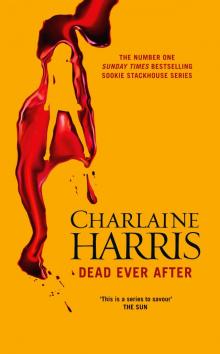 Dead Ever After
Dead Ever After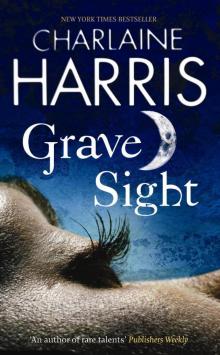 Grave Sight
Grave Sight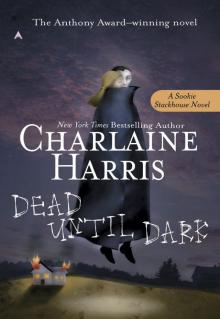 Dead Until Dark
Dead Until Dark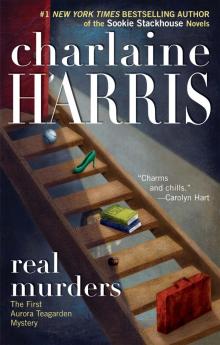 Real Murders
Real Murders Wolfsbane and Mistletoe
Wolfsbane and Mistletoe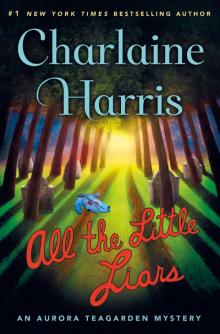 All the Little Liars
All the Little Liars Dead to the World
Dead to the World Club Dead
Club Dead Dead in the Family
Dead in the Family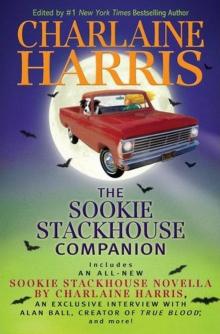 The Sookie Stackhouse Companion
The Sookie Stackhouse Companion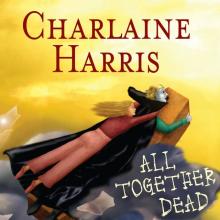 All Together Dead
All Together Dead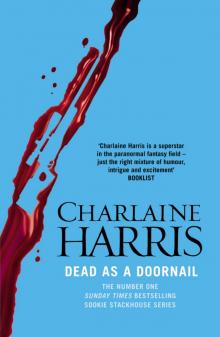 Dead as a Doornail
Dead as a Doornail Sleep Like a Baby
Sleep Like a Baby Night Shift
Night Shift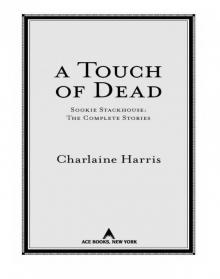 A Touch of Dead
A Touch of Dead Living Dead in Dallas
Living Dead in Dallas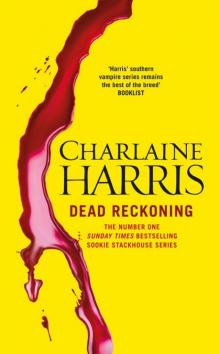 Dead Reckoning
Dead Reckoning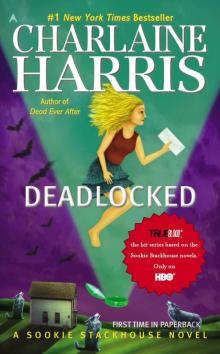 Deadlocked
Deadlocked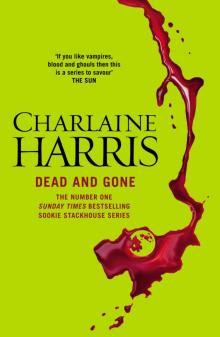 Dead and Gone
Dead and Gone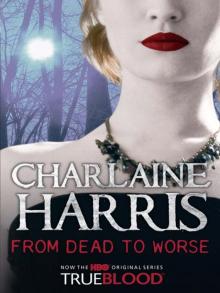 From Dead to Worse
From Dead to Worse Definitely Dead
Definitely Dead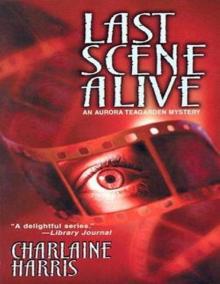 Last Scene Alive
Last Scene Alive Grave Secret
Grave Secret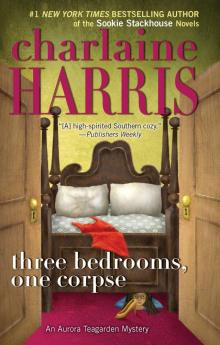 Three Bedrooms, One Corpse
Three Bedrooms, One Corpse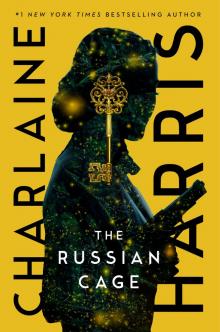 The Russian Cage
The Russian Cage Shakespeares Counselor
Shakespeares Counselor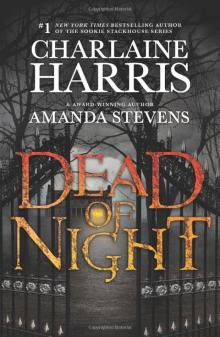 Dead of Night
Dead of Night Shakespeares Trollop
Shakespeares Trollop One Word Answer
One Word Answer Shakespeares Champion
Shakespeares Champion Shakespeares Christmas
Shakespeares Christmas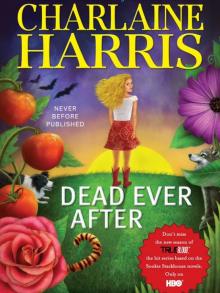 Shakespeares Landlord
Shakespeares Landlord Poppy Done to Death
Poppy Done to Death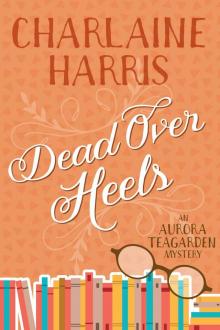 Dead Over Heels
Dead Over Heels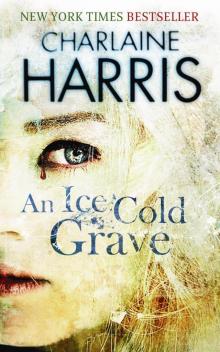 An Ice Cold Grave
An Ice Cold Grave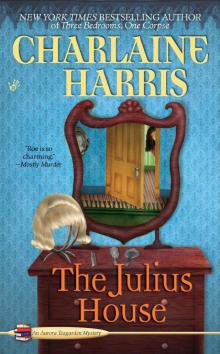 The Julius House
The Julius House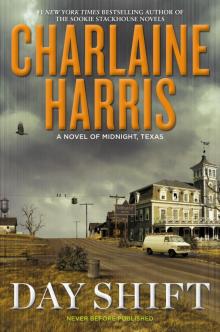 Day Shift
Day Shift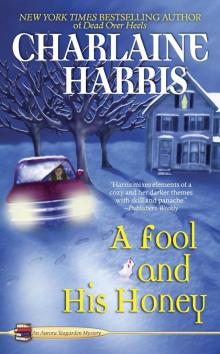 A Fool And His Honey
A Fool And His Honey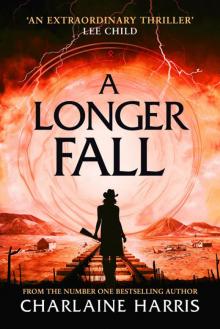 A Longer Fall (Gunnie Rose)
A Longer Fall (Gunnie Rose)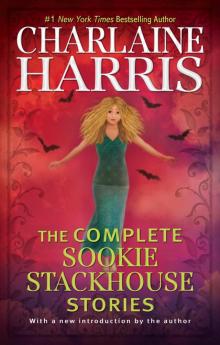 The Complete Sookie Stackhouse Stories (Sookie Stackhouse/True Blood)
The Complete Sookie Stackhouse Stories (Sookie Stackhouse/True Blood)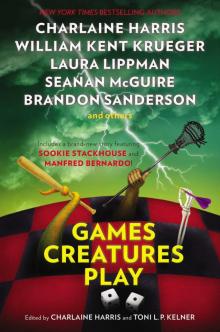 Games Creatures Play
Games Creatures Play Death's Excellent Vacation
Death's Excellent Vacation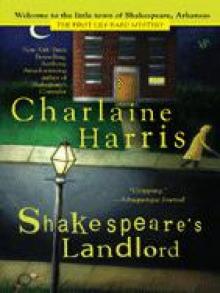 (LB2) Shakespeare's Landlord
(LB2) Shakespeare's Landlord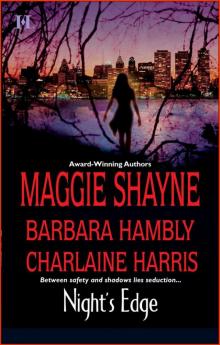 Dancers In The Dark - Night's Edge
Dancers In The Dark - Night's Edge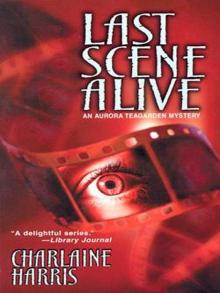 Last Scene Alive at-7
Last Scene Alive at-7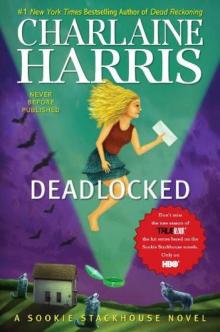 Deadlocked: A Sookie Stackhouse Novel
Deadlocked: A Sookie Stackhouse Novel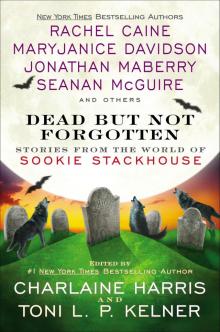 Dead But Not Forgotten
Dead But Not Forgotten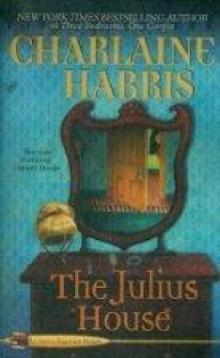 (4/10) The Julius House
(4/10) The Julius House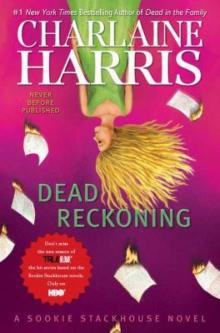 Dead Reckoning: A Sookie Stackhouse Novel
Dead Reckoning: A Sookie Stackhouse Novel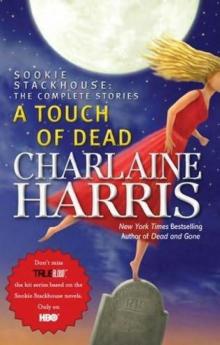 A Touch of Dead (sookie stackhouse (southern vampire))
A Touch of Dead (sookie stackhouse (southern vampire))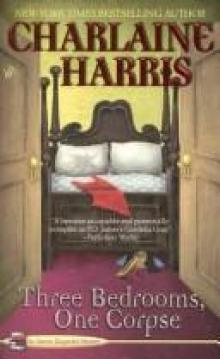 (3T)Three Bedrooms, One Corpse
(3T)Three Bedrooms, One Corpse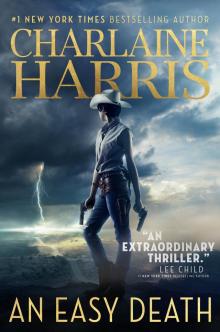 An Easy Death
An Easy Death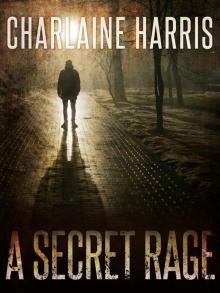 A Secret Rage
A Secret Rage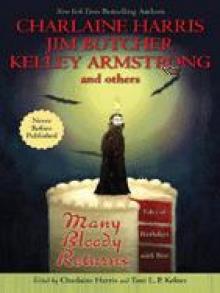 Many Bloody Returns
Many Bloody Returns![Harper Connelly [3] An Ice Cold Grave Read online](http://i1.bookreadfree.com/i/03/25/harper_connelly_3_an_ice_cold_grave_preview.jpg) Harper Connelly [3] An Ice Cold Grave
Harper Connelly [3] An Ice Cold Grave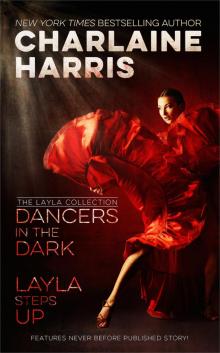 Dancers in the Dark and Layla Steps Up
Dancers in the Dark and Layla Steps Up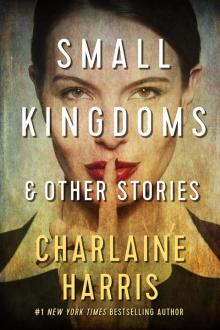 Small Kingdoms and Other Stories
Small Kingdoms and Other Stories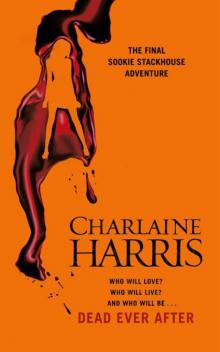 Dead Ever After: A Sookie Stackhouse Novel
Dead Ever After: A Sookie Stackhouse Novel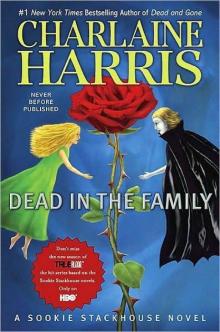 Dead in the Family ss-10
Dead in the Family ss-10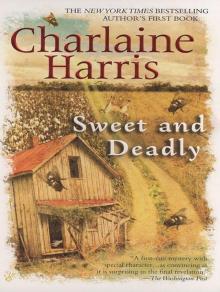 Sweet and Deadly aka Dead Dog
Sweet and Deadly aka Dead Dog An Easy Death (Gunnie Rose #1)
An Easy Death (Gunnie Rose #1)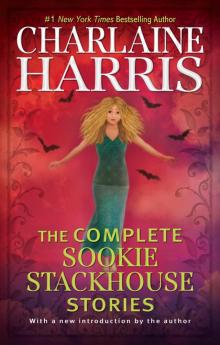 The Complete Sookie Stackhouse Stories
The Complete Sookie Stackhouse Stories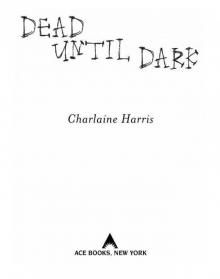 Sookie Stackhouse 8-copy Boxed Set
Sookie Stackhouse 8-copy Boxed Set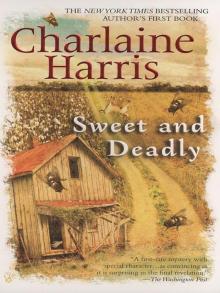 Sweet and Deadly
Sweet and Deadly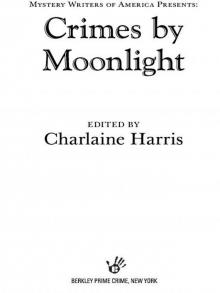 Crimes by Moonlight
Crimes by Moonlight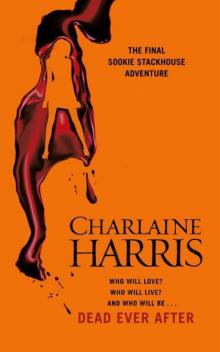 Dead Ever After: A True Blood Novel
Dead Ever After: A True Blood Novel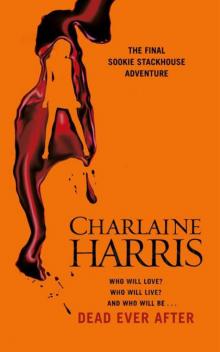 Dead Ever After ss-13
Dead Ever After ss-13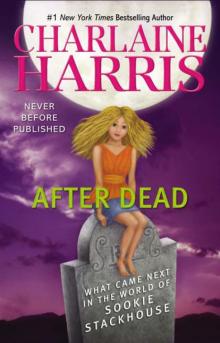 After Dead
After Dead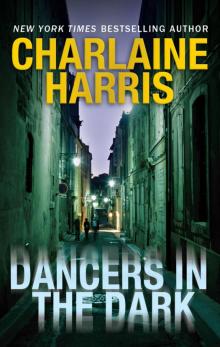 Dancers in the Dark
Dancers in the Dark (LB1) Shakespeare's Champion
(LB1) Shakespeare's Champion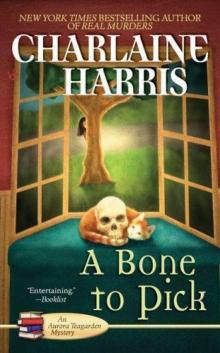 A Bone to Pick (Teagarden Mysteries,2)
A Bone to Pick (Teagarden Mysteries,2)